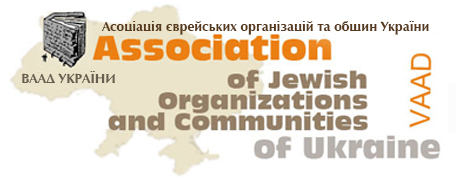Dr. Zeev Hanin: Ukraine: Opposites come together
 |
|
| The picture from http://www.israelhayom.com/ |
News outlets worldwide and in Israel have painted the Ukrainian crisis as a classic conflict between the Ukrainian west and Russian east, between the rural population in the central and western parts of Ukraine and the city dwellers in the east, between those seeking to integrate with the European Union and the "easterners" who want to return to Mother Russia, and, of course, between Russian President Vladimir Putin, who seeks to build a new Soviet Union, and Europe, which has begun to look eastward.
All those things are true, albeit a bit oversimplified. The reality is much more complex. First of all, the clash between oranges and blues from 10 years ago is no longer the main issue, and today members from opposite sides of that conflict are fighting under the same banner.
The conflict in Ukraine is actually between the ruling authorities and society, which includes both the middle and lower classes, who under Viktor Yanukovych have seen poverty numbers double, Ukrainian nationalists from the west and even oligarchs who lost fortunes due to Yanukovych's poor handling of the nation's economy and his manipulation of its wealth for his own gain. Those same oligarchs were furious that they did not have a direct link to the Russian market, and were not happy with Yanukovych's sealing off access to Europe. The composition of the group protesting in Independence Square in Kiev is one that the president never saw coming.
Yanukovych's campaign to centralize power under his authority in effect turned the parliamentary republic into a presidential republic, with security forces, military, police and special forces directly under the president's command. Yanukovych took control over court houses and industrial associations, and tried to convince Russia, the West and his own people that the alternative to his rule, the nationalist free party, was much worse.
Ukraine's riots saw a clash between an entire society and a government employing bureaucrats, a few interest groups and security forces. Unlike countries in Asia, or Muslim nations, however, Ukraine avoided civil war.
It should be noted that a series of interesting events is unfolding in Ukraine. The first is a constitutional revolution. The parliament took control, reformed itself, and the president's party fell apart with most of the power now in the opposition's hands. It was the parliament that impeached the president, reverted the constitution to a parliamentary republic, reappointed ministers, including the defense, police, special forces minister and announced elections in May, which look like they will be free elections. The liberal and parties involved in the protests are expected to get the majority of the vote.
Ukraine's opposition had actually played a secondary role in the protests. During the first days of the rallies, protesters asked politicians not to show up in front of the cameras, and the politicians only joined in recently. It was interesting to watch the dynamic between the old opposition elite (the former oranges) and the new leaders who emerged at Independence Square. If they do not work together, we will likely see another clash -- this time between the different parties of the revolution, and hopefully it would be a political fight and not a violent one.
And now to finish with the Jewish angle: There were Jews on both sides of the Ukrainian protests, despite the Jewish community taking no official stance. While there may have been anti-Semites at Independence Square, there was no anti-Semitism. Should we worry that the nationalists now in power will be bad for the Jews? As of now it is hard to tell for sure, and it will be yet another test for the new Ukraine.
Dr. Zeev Hanin is a political science professor at Bar-Ilan University and Ariel University.
Air Jordan 1 Low White/Black-Midnight Navy For Sale


.png)

